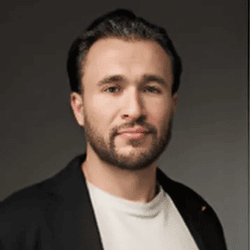
Dmitriy Yagudin
International NeuroUniversity named D. R. Yagudin, Russian FederationPresentation Title:
Neurointuition is a phenomenon of unconscious thinking
Abstract
This study has a goal to detect and describe neurophysiological mechanisms lying in the base of the phenomenon of "neurointuion," understood as an ability to a rapid, unconscious decision making or formation of estimations based on implicit information patterns, bypassing the stage of consecutive logical analysis. The main research question is which specific cognitive processes and neural nets provide the efficiency of unconscious pattern-recognition, displaying as an intuition, and what is their emotional and functional value? Our research is based on integrative approach, combining theoretical analysis: systematization of intuition conceptions in cognitive psychology (the dual process theory, model of recognition- decision making (RPD) of H. Klein), in neuroscience, (the role of basal ganglias, insula, medial prefrontal cortex, in implicit learning and emotional marking) and in evolutionary biology (adaptability of quick decisions). Analysis of empirical data: critical review of modern neuroimaging research (fMRI, electroencephalography) studying brain activation when solving intuitive problems, experimental data on implicit learning and subliminal priming processing; clinical observations of patients with damages of specific brain areas, affecting intuitive abilities. Literature review methodology: systematic search and analysis of relevant publications in licensed scientific journals on psychology, neuroscience and cognitive science during the last 15 years. Based on the analysis carried out, the following key conclusions have been generated: neurointuion is a product of parallel information processing: the role of subcortical structures is confirmed (basal ganglias), and of rapid neural pathways automatic recognition of complex patterns and associations, accumulated via previous experience (implicit learning). Critical role of somatic markers and emotional intellect: insula and medial prefrontal cortex (mPFC) participate in "somatic markers" generation (A. Domacio) - bodily signals, (for instance, light anxiety or confidence) which unconsciously direct the choice in conditions of uncertainty or time deficiency. The presented evidence earnestly testifies that neurointuion is an evolutionary formed, neurobiologically justified cognitive mechanism. Its basis is highly efficient, unconscious recognition of patients and associations, made through the specific neural nets (basal ganglias, insula, mPFC) and somatic markers. Understanding of is of fundamental importance for cognitive science and practical application in spheres requiring quick decisions in conditions of incomplete information ( in medicine, management, sports, creativity), as well as for developing of artificial intellect models, which imitate human intuition. The report emphasizes the necessary of further interdisciplinary research for desalination of neurodynamics of intuitive processes and creating methods of their diagnostic and development.
Biography
Dmitriy Yagudin, Doctor of Psychological Sciences and PhD, is the founder and ideologist of the International NeuroUniversity named after D. R. Yagudin. He serves as Chairman of the Board of the Association of Outstanding Figures in Science, Culture, Education, and Art "Unity." He is also the author of numerous scientific publications and books in the fields of neuropsychology and cognitive psychology.

